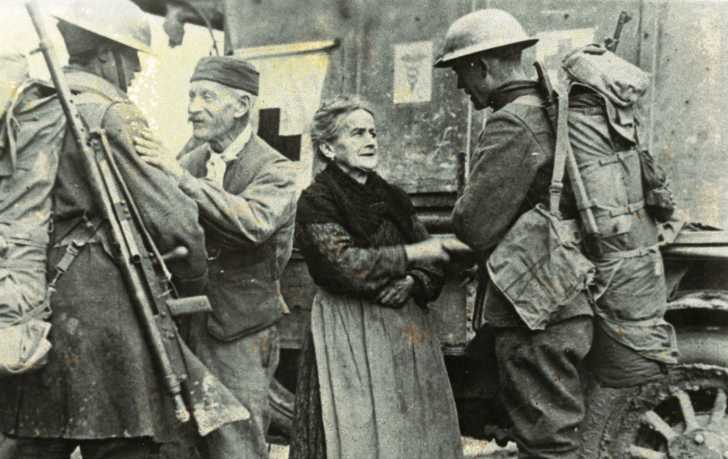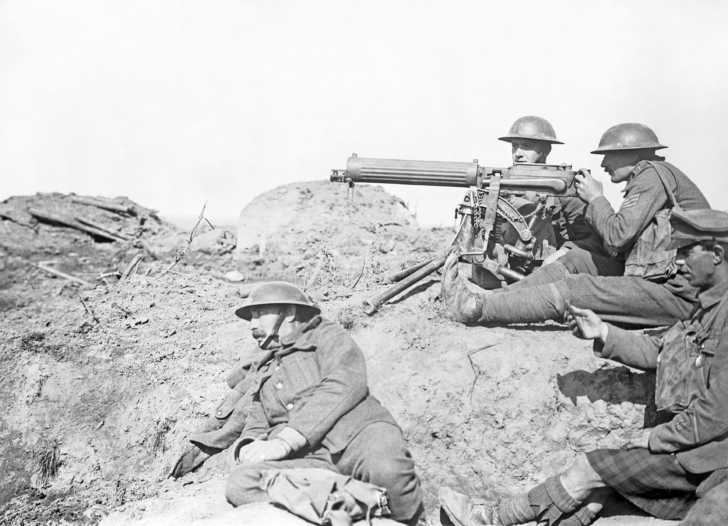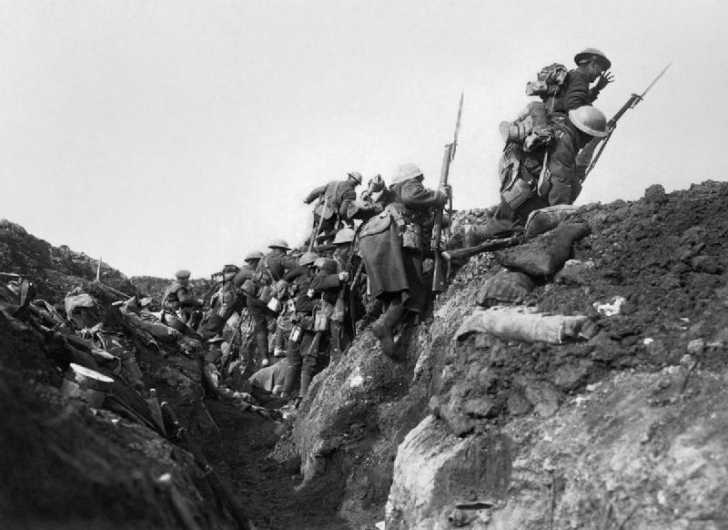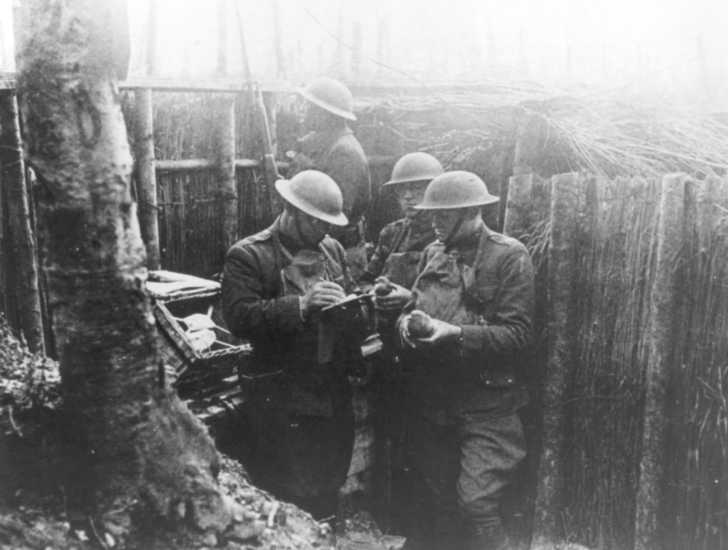Unflappable

To be in a “flap” meant to be worried about something. This term dates back to 1916. It was first a naval expression that came from how birds flap their wings – restlessly. It was soon integrated into the English language. Later on we got the term, “unflappable,” meaning unflustered or level-headed.
Shell-Shocked

Shell-shocked first appeared in a medical journal from 1916. The British journal reported, “Only one case of shell shock has come under my observation. A Belgian officer was the victim. A shell burst near him without inflicting any physical injury. He presented practically complete loss of sensation in the lower extremities and much loss of sensation.”
Over The Top

This is a phrase meaning excessive amounts or beyond reasonable limits. The term was first coined during WWI, when troops engaged in trench warfare. The command for releasing soldiers into battle (thus having them climb up, over the top of the trench) was, “Over the top lads, and best of luck!” It turns out, this tactic gained little to no ground, despite costing thousands of lives.
Chat

You know what they say – nothing brings people together like picking lice out of each other’s heads. Ok, so maybe no one says that, but they should! Soldiers would “chat” while in the trenches, picking lice out of each other’s hair.
SKM: below-content placeholderWhizzco for DOT

